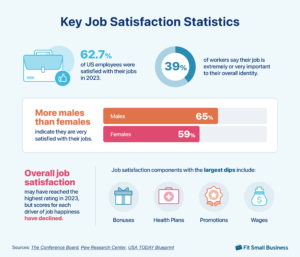A prepayment penalty is a fee that a lender can charge if you pay off or pay down a loan by a certain amount before a specified date. In order for a lender to charge a prepayment penalty, it must be disclosed upfront in its loan agreement. It must also specify the specific conditions in…
Business Financing
7 Best Fix and Flip Loans for 2025
The best fix-and-flip loans typically offer competitive rates and quick access to funds, have short repayment terms, and have flexible qualification requirements. Since the best loan will depend on your specific circumstances, I’ve selected fix and flip lenders with a wide range of qualification requirements and loan terms. Here are the seven best loans for…
Apartment Building Financing Options For Business Owners
Financing an apartment building can be done in several ways. Apartment loans are a type of multi-family financing that assists with the purchase or refinancing of an apartment building. These include loans that are government-backed, offered by a bank or other lending institution, or offered on a short-term basis. Each has varying terms of eligibility…
Guidant Financial Review
Guidant Financial provides funding solutions for small businesses and franchises. It’s perhaps most well known for its Rollover for Business Startups (ROBS) product, which allows retirement funds to be accessed tax- and penalty-free. However, Guidant Financial also offers other products and services, such as Small Business Administration (SBA) loans, unsecured loans, portfolio loans, and equipment…
19 Job Satisfaction Statistics 2024: What Employers Should Know
Employees who are satisfied with their jobs are more productive and less likely to look for work opportunities that may offer higher pay, competitive benefits, and a career path that helps them grow. While several factors can impact worker happiness, these 19 job satisfaction statistics will help you understand which ones can aid you in…
What Is Form 5500 & How to Fill It Out
IRS Form 5500 is a form that must be filed annually by companies that sponsor an employee retirement plan. Its main purpose is to provide information about the plan, such as its financial condition and allocation of investments. The form typically needs to be filed on the last day of the seventh month after the…
What Is the Cash Ratio & How to Calculate It?
The cash ratio measures a company’s ability to pay its short-term debts using only cash and cash equivalents. It’s one of many financial ratios that investors and lenders use to measure the health of a business and the risk of lending it additional money. The cash ratio is calculated by taking the sum of a…
10 Best SBA 504 Lenders for Small Businesses in FY2023
The Small Business Administration (SBA) 504 loan program provides funds for major fixed assets that will subsequently help grow a company or create additional jobs. Getting an SBA loan can be a complex and time-consuming process, which is why working with an experienced lender can be crucial to ensure that you get approved—and in a…







